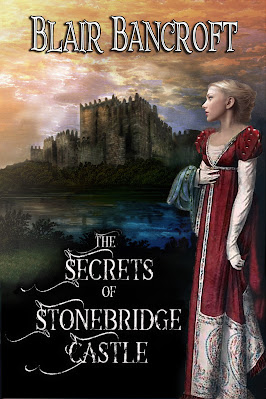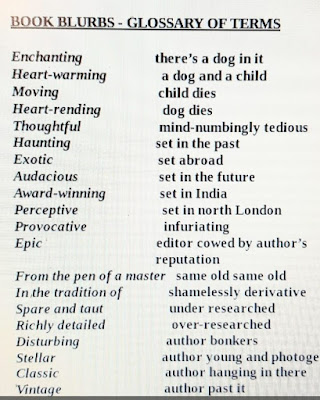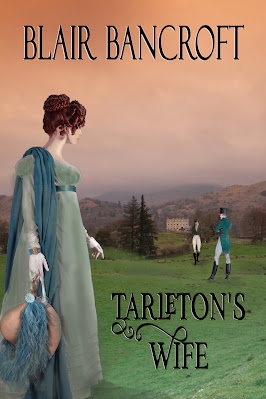I was returning home from grocery-shopping earlier this week, and at a stop-light in Lake Mary, Florida, was astounded to see cloud formations I had never seen before. Fortunately, the stoplight was long enough for me to dig out my phone and snap a couple of photos. I'm told those formations are called "horsetails," but I believe the phenomenon is quite rare. When saving to My Pictures, I named the photo: "Clouds.Vertical."
Not sure where the southern accent came from in a city about to suffer a snowstorm, but it's fun to find a Highway Department with a sense of humor.
Shawnee Boeddeker posted the following to Facebook - ice formations on her office window at around -12°. She named it "Birds Among Flowers." Whatever you call it, it's an amazing work of nature's art, as well as a remarkable photo.
~ * ~
I don't know how many times I've read Jane Austen's Pride and Prejudice (as well as viewing the best movie versions several times over). I've even read that last fragment, Sanditon, and been frustrated by other's people's attempts to finish it. But somehow, even though I've seen a rather bland movie version of Persuasion, I don't ever recall reading it. Until this week, when I found it on my Kindle copy of The Complete Works of Jane Austen. And, as books usually are, it was a far cry from the movie, giving much better insights into the head of the long-suffering heroine. I cannot recommend the style, however—it seemed far more dull and prosy than Austen's other works. (Clearly, we all have times when we're not at our best.)
After I finished Persuasion, Northranger Abbey popped up, and it seemed a good time to take a second look at this book which pokes gentle fun at the Gothic novels so popular in the Regency. And there, lo and behold, at the end of Chapter 5 was a passage that meant nothing to me when I read it so many years ago, but which, after 25 years as a Romance Author, really rang a bell. I sat down to copy it at close to midnight because I knew I'd never find my way back to the right page later. In order to make it easier to read, I have taken the liberty of adding paragraphs to what was originally one long passage.
Quote from Northranger Abbey, Chapter 5, by Jane Austen
. . . I will not adopt that ungenerous and impolitic custom so common with novel-writers, of degrading by their contemptuous censure the very performances, to the number of which they are themselves adding—joining with their greatest enemies in bestowing the harshest epithets on such works, and scarcely ever permitting them to be read by their own heroine, who, if she accidentally take up a novel, is sure to turn over its insipid pages with disgust. Alas! If the heroine of one novel be not patronized by the heroine of another, from whom can she expect protection and regard? I cannot approve of it. Let us leave it to the reviewers to abuse such effusions of fancy at their leisure, and over every new novel to talk in threadbare strains of the trash with which the press now groans. Let us not desert one another; we are an injured body.
Although our productions have afforded more extensive and unaffected pleasure than those of any other literary corporation in the world, no species of composition has been so much decried. From pride, ignorance, or fashion, our foes are almost as many as our readers. And while the abilities of the nine-hundredth abridger of the History of England, or of the man who collects and publishes in a volume some dozen lines of Milton, Pope, and Prior, with a paper from the Spectator, and a chapter from Sterne, are eulogized by a thousand pens—there seems almost a general wish of decrying the capacity and undervaluing the labour of the novelist, and of slighting the performances which have only genius, wit, and taste to recommend them. “I am no novel-reader—I seldom look into novels—Do not imagine that I often read novels—It is really very well for a novel.” Such is the common cant. “And what are you rad, Miss —?” “Oh! It is only a novel!” replies the young lady, while she lays down her book with affected indifference, or momentary shame. “It is only Cecilia, or Camilla, or Belinda”; or, in short, only some work in which the greatest powers of the mind are displayed, in which the mos thorough knowledge of human nature, the happiest delineation of its varieties, the livelist effusions of wit and humour, are conveyed to the world in the best-chosen language.
Now, had the same young lady been engaged with a volume of the Spectator, instead of such a work, how proudly would she have produced the book, and told its name; though the chances must be against her being occupied by any part of that voluminous publication, of which either the matter or manner would not disgust a young person of taste: the substance of its papers so often consisting in the statement of improbable circumstances, unnatural characters, and topics of conversation which no longer concern anyone living; and their language, too, frequently so coarse as to give no very favourable idea of the age that could endure it.
~ * ~
Again this month, my same two Regency Gothics are running neck and neck at the top of my sales list—both tales chock-full of ghosts of every age and description. So to those who have read them, thank you! And to those who have not, perhaps you'd like to take a peek. Both are available from most online vendors. The links are to a 20% free read offered by Smashwords.
For a link to a 20% free read on Smashwords, click here.
For a link to a 20% free read on Smashwords, click here.
~ * ~
For a link to Blair's website, click here.
For a link to Blair's Facebook Author Page click here.
Thanks for stopping by,













